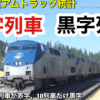The basic viewpoint of discussing Human Logistics and Tourism
公開日:
:
最終更新日:2023/05/20
Human LOGISTICS, 人流 観光 ツーリズム ツーリスト
In the process of studying Tourism Studies, consider whether to discuss “観光(tourism)” for what. Then, we will be forced to consider the difference between “tourism” and “something other than tourism.” As a result, I would feel the limitations on the use of the lexical “tourism”, I have advocated the use of the lexical “human logistics”.
There is also the concept of using a lexical “ツーリズム” in place of the lexical “観光” in Japan. However, that is not a fundamental solution is as was also described in a separate article.
Example of the use of the lexical “people flow”, the affiliate of the Ministry of Justice Immigration Bureau, have been used in the name of the monthly magazine published from June 1987. Its monthly magazine is a statistical reference manual that focuses on immigration statistics and alien statistics. In affected, “Problems related to international human stream” In 1994 transport White Paper is described.
In addition, researchers have published “the era of international human flow” in 1991 and “human flow of empire to expansion” in 1993.
So far researchers have been using “human flow” among the generally Negative context. “Human flow”, “people flow” and“human stream” are described with using the same Chinese characters. The use of these examples is not a concept, including the accommodation and the like. In the sense that compared to the logistics, including storage, etc., it is necessary to consider Human Logistics concept.
When discussing the human logistics concept that is not limited to the motivation to move the people, no longer inevitable historical recognition problem. Previous studies historical issues, discusses the human logistics around a political issue. On the other hand, for tourism research, there are those related to Manchuria tourism, there are things about the tourism policy of the Governor-General of Korea in colonial Korea. However, it is too depressing to historical recognition problem, etc., we will not find a commonality of the way discussed as a Tourism Studies.
With respect to World Heritage registration of warship Island, also, with respect to the registration of Memory of the World of the “Nanjing Massacre and comfort women”, was developed into a diplomatic issue between Japan and the “China and South Korea.” Both of which originate from the historic recognition problem. Memory of the World, better expressed as Record of the World is accurate.
Record documents that were judged the Imperial Japanese Army of war crimes will be exhibited in the museum. In consequence, it will be utilized as a tourism resource.”Memory” stimulation intensity is determined by the exposure of the media. You see if accustomed to foreign affairs, irritation increases. As a result, the value as a tourism resource is increased.It is a contradiction.
“Viewpoint to analyze the force to go to see until moving the people” is separate from the evaluation of historical facts. Movie and drama of war experience have been given to the people of tourism memory resources. “Casablanca,” “The Bridge on the River Kwai” is typical. “Miss Saigon” is also a recent example. As a result, people will enjoy sightseeing by moving.
As regarding with measurement of force to move this person, , it can be carried out by the number of visitors and the payments. The number of times that appeared in the media can also be recognized as objective ones. With the search of the Asahi newspaper article and Google, it can be grasped. Rather than differences in history recognition, by focusing on the force to move a person, I’m wondering not deepen the discussion.
関連記事
-

-
GEMINIにきく8月のフェロー諸島
8月のフェロー諸島は、ヌークやスピッツベルゲンとはまた違う、**「緑の断崖と海、そして何万羽もの鳥た
-
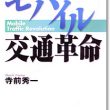
-
はやり言葉になるか『Maas』日経BP社を読んで
はやり言葉になるかどうかだが、UberやRide-Shareほどのインパクトはないのだろう。とにか
-
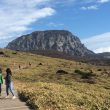
-
Touristic problem of Jeju island richer than Okinawa and Kyushu held ~ Participation in press tour ~
It was a short time from November 2 to 4, but I pa
-

-
保護中: 『中世を旅する人びと』 阿部 謹也著を読んで
西洋中世における遍歴職人の「旅」とは、糧を得るための苦行であり、親方の呪縛から解放される喜びでもあっ
-
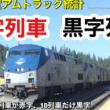
-
2026年4月20日 AMRAKの現状認識
◎日本のシステム 線路はJR旅客会社が保有し、JR貨物は「樹液の範囲内で線路を借りて運行」 A
-

-
Analysis and Future Considerations on Increasing Chinese Travelers and International Travel & Human Logistics Market ⓫
X The direction Japan should take in the global tr
-
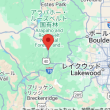
-
デンバーからソルトレイクシティー
シカゴからソルトレイクシティーにcoachで向かいます。途中の車窓について案内し
-

-
動画で考える人流観光
Countries Earning the Most from International Tour
-

-
ハワイは、観光地と観光地ではないところが大きく違うというのは本当ですか
それは**「本当すぎるほど本当」**です。ハワイ(特にオアフ島)を訪れた人が抱く「楽園」のイメージと
-

-
AIに聞く 沖縄とハワイの違い
これら米国海外領土の歴史を知ると、現在のアメリカの国防戦略や、沖縄などの基地問題の見え方も少し変わっ
- PREV
- 日清関係(メモ)
- NEXT
- はじめに 人流・観光論の基本的視座

